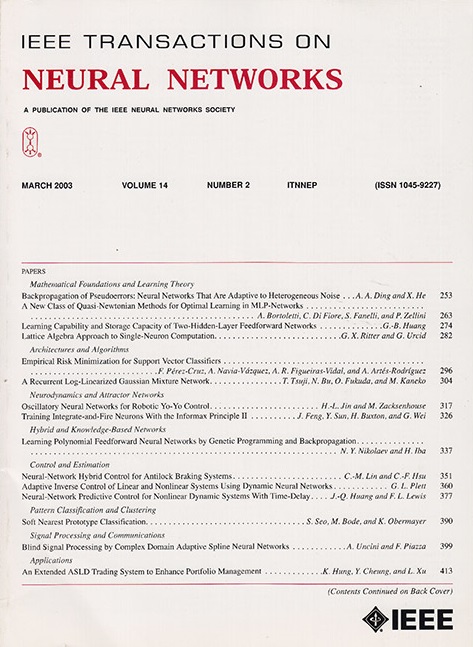FGPLFA:无源无监督域自适应的细粒度伪标记和特征对齐。
IF 8.9
1区 计算机科学
Q1 COMPUTER SCIENCE, ARTIFICIAL INTELLIGENCE
IEEE transactions on neural networks and learning systems
Pub Date : 2025-10-07
DOI:10.1109/tnnls.2025.3616236
引用次数: 0
摘要
无源无监督域自适应(SFUDA)的目的是在不访问源域数据的情况下,提高无标记目标域数据的性能。这在由于隐私或遵从性约束而存在数据共享限制的场景中至关重要。现有的SFUDA方法通常依赖于基于熵或置信度度量的伪标记技术。这些方法通常忽略了细粒度的数据特征,导致产生噪声的伪标签,从而降低了模型的性能。为了克服这一限制,我们开发了一种名为细粒度伪标记和特征对齐(FGPLFA)的新方法来提高SFUDA的性能。FGPLFA从基于梯度的指标开始,该指标集成了模型知识和数据特征的见解,从而创建了更可靠的样本指标。为了提高细粒度,引入了细粒度伪标记(FGPL)模块。该模块根据梯度的大小和方向对数据进行聚类,允许在样本级别上将数据集划分为子集。对子集进行了类别特异性和领域特异性伪标记,建立了多级粒度结构,减少了伪标签的噪声。随后,介绍了均值-协方差调整特征对齐(MCAFA)方法。子集的特征按照指定的顺序排列,增强了模型在目标域的适应性。在多个数据集上进行的大量实验验证了FGPLFA的优越性。本文章由计算机程序翻译,如有差异,请以英文原文为准。
FGPLFA: Fine-Grained Pseudo-Labeling and Feature Alignment for Source-Free Unsupervised Domain Adaptation.
Source-free unsupervised domain adaptation (SFUDA) aims to improve performance in unlabeled target domain data without accessing source domain data. This is crucial in scenarios with data-sharing restrictions due to privacy or compliance constraints. Existing SFUDA approaches often rely on pseudo-labeling techniques based on entropy or confidence metrics. These often overlook fine-grained data features, resulting in noisy pseudo-labels that degrade model performance. To overcome this limitation, we develop a new method called fine-grained pseudo-labeling and feature alignment (FGPLFA) to enhance SFUDA's performance. FGPLFA starts with a gradient-based metric that integrates insights from both model knowledge and data features, creating a more reliable sample metric. To enhance fine granularity, the fine-grained pseudo-labeling (FGPL) module was introduced. This module clusters data based on the magnitude and direction of gradients, allowing for dataset partitioning into subsets at the sample level. The subsets are pseudo-labeled with category-specificity and domain specificity, establishing a multilevel granularity structure that reduces noisy pseudo-labels. Subsequently, the mean-covariance adjustment feature alignment (MCAFA) method was introduced. Features from the subsets are aligned in a specified sequence, enhancing model adaptability in the target domain. Extensive experiments conducted across multiple datasets validate the superiority of FGPLFA.
求助全文
通过发布文献求助,成功后即可免费获取论文全文。
去求助
来源期刊

IEEE transactions on neural networks and learning systems
COMPUTER SCIENCE, ARTIFICIAL INTELLIGENCE-COMPUTER SCIENCE, HARDWARE & ARCHITECTURE
CiteScore
23.80
自引率
9.60%
发文量
2102
审稿时长
3-8 weeks
期刊介绍:
The focus of IEEE Transactions on Neural Networks and Learning Systems is to present scholarly articles discussing the theory, design, and applications of neural networks as well as other learning systems. The journal primarily highlights technical and scientific research in this domain.
 求助内容:
求助内容: 应助结果提醒方式:
应助结果提醒方式:


